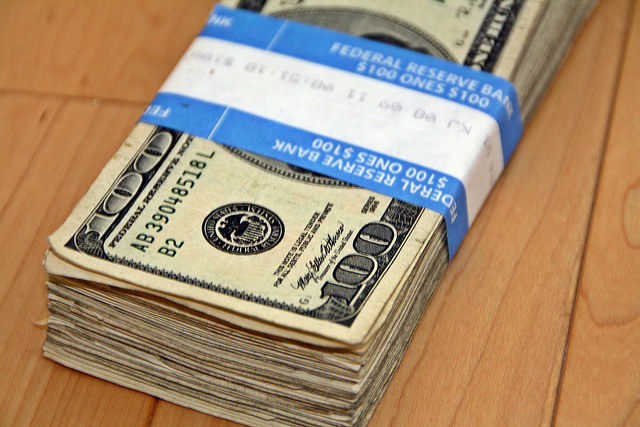
The original founder of Mt. Gox, Jed McCaleb, told Ars that he lost around $50,000 (held in dollars, not bitcoins) in the meltdown of the Bitcoin exchange that he created. The now-defunct Bitcoin exchange allowed users to hold US dollars and bitcoins in their online wallets.
In an interview with Ars, McCaleb said that he is no longer involved with the company—which eventually became the world’s largest Bitcoin exchange—since he sold it to Mark Karpeles. Karpeles is now at the center of the Tokyo-based company’s breakdown and bankruptcy and has said little about how Mt. Gox collapsed. McCaleb does, however, retain a 12 percent stake in the company, according to a company document leaked earlier this year.“I met [Karpeles] I think on bitcointalk.org,” McCaleb said, referring to a primary discussion forum for Bitcoin users. “The Bitcoin community was very small at that time and I asked him to do some software development for me. He did that task and I was looking for someone else to run Mt. Gox so I could focus on other things. We discussed the possibility of him buying Mt. Gox from me and I ended up selling it to him in 2011.”
In February 2014, Mt. Gox announced it lost 750,000 bitcoins belonging to its customers as well as 100,000 of its own bitcoins after weeks of DDOS attacks and “transaction malleability” problems. In total, Mt. Gox is estimated to have lost $468 million worth of bitcoins, prompting the exchange to file for bankruptcy protection in Japan and the United States. In addition to bankruptcy, Mt. Gox is now facing lawsuits as well. Most notably, a man from an Illinois brought a proposed class-action lawsuit against Mt. Gox in the US, alleging large-scale fraud.
McCaleb, who originally founded the eDonkey filesharing platform, first created the Mt. Gox exchange platform in 2010. Later, McCaleb moved on to working on the Ripple protocol, another cryptocurrency. Earlier this year, he announced that he was working on a “secret Bitcoin project.”
No connection, except for a 12 percent stake
The American entrepreneur has been instrumental in helping to move Mt. Gox, which is now under control of a Japanese court-appointed administrator, in a pending sale to a group of entrepreneurs calling itself Sunlot Holdings. Earlier this week, Sunlot stepped forward saying that it had cooperation from McCaleb and Mt. Gox’s number two executive under Karpeles, another Frenchman named Gonzague Gay-Bouchery.
McCaleb also said that the recent legal dispute has brought him back to Mt. Gox for the first time in years.“Just prior to that, I was in the process of being dismissed from the Mt. Gox lawsuits because I have not had any involvement with Mt. Gox other than as a minority shareholder since early 2011 when I sold it to Mark Karpeles, whom I have never even met in person,” he said. “It is my understanding that Mark also rewrote the entire codebase sometime in 2011 shortly after the sale and none of my code remained in use. Aside from the sale, I have never received any distributions or profits from Mark.”
“When I first made Mt. Gox, I wanted to give the Bitcoin community a place to gather,” McCaleb added.
“Although I am proud of how much the community has grown over the years, it saddens me to see the negative impact that Mt. Gox ended up having. Like many [others], I had money in Mt. Gox which I have also lost. The community deserves to find out the truth, and I am going to do what I can to help. Ultimately, with so many new positive projects being launched every day, Bitcoin will be able to show the world that we will not only recover, but grow stronger.”
reader comments
20